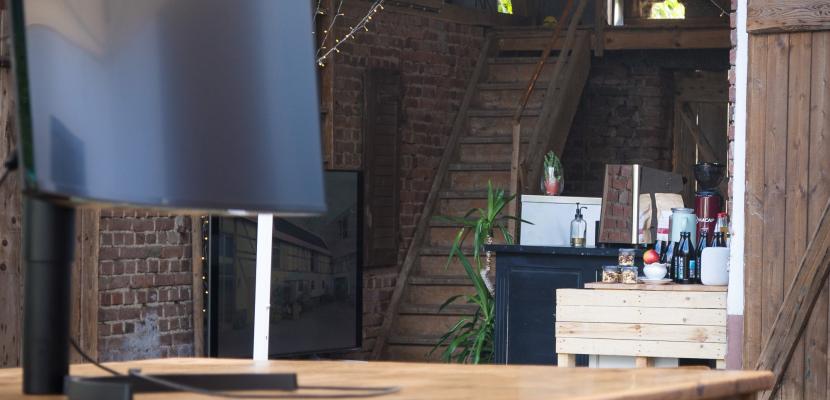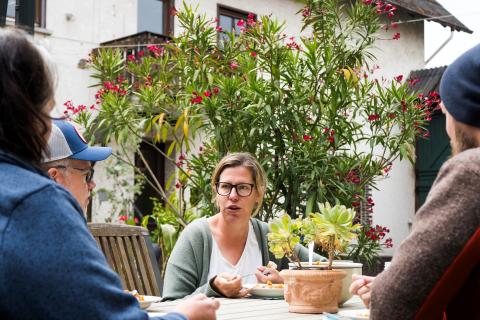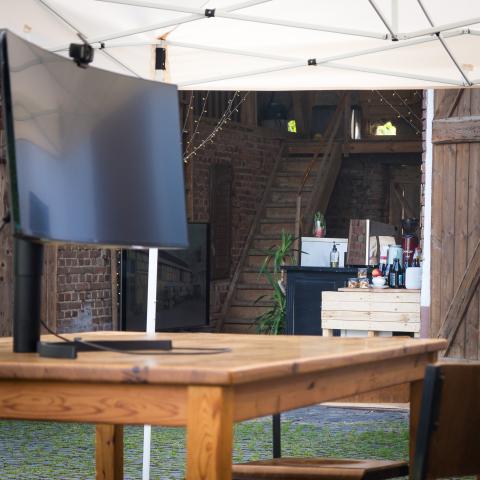
Pop-Up-Space: Testing the Coworking Concept for Local Development

About this good practice
In the summer of 2024 the Weidenhof (a former farm) embarked on an exploratory initiative to assess the potential of a rural coworking space. A Pop-Up Coworking Space was temporarily set up in the garden, using a simple and cost-effective arrangement. The goal was to engage the local community, stimulate interest, and collect feedback to strategically inform the project’s future direction. By bringing together diverse groups—entrepreneurs, creatives, and residents—this pilot project created a space for collaboration, dialogue, and new ideas.
The concept of coworking in rural areas is closely linked to fostering both digital and social innovation. By providing a shared workspace, Weidenhof aims to bridge the digital divide and create an environment where knowledge and technology can flourish beyond urban centers. The Pop-Up Coworking Space served as a short-time platform for exploring how digital tools can support collaboration, and how social networks can be strengthened through regular, face-to-face interaction. This pop-up approach has the potential to catalyze und create a long-term-project already based on rural and regional needs.
Resources needed
The Pop-Up Coworking Space required stable digital connectivity, computers, docking stations, office setups, and chill-out areas. At least two personnel were needed to manage logistics, engage with users, and facilitate the testing phase, ensuring smooth operations and valuable feedback collection.
Evidence of success
The Pop-Up Coworking Space at Weidenhof proved highly successful, generating strong local interest and positive feedback. A waiting list of potential users highlights demand for a permanent space. Interest from communities and stakeholders further underscores its relevance. The project is now advancing towards securing LEADER funding, a key political instrument, to establish a long-term coworking hub that fosters rural innovation, collaboration, and digital inclusion.
Potential for learning or transfer
The Pop-Up Coworking Space provided key insights into how digital tools and shared work environments can foster collaboration and strengthen rural networks. By integrating digital solutions in a low-threshold, temporary setup, it demonstrated that small-scale interventions can effectively drive regional innovation and social connectivity. This initiative canhelp future coworking operators understand local needs, refine their concepts, and gain confidence in their approach. The project also highlighted the importance of phased implementation—starting with a temporary setup to gather feedback, address concerns, and gradually build acceptance among stakeholders. In rural areas, where digitalization and community engagement often face hesitation, a pop-up approach can ease anxieties, facilitate dialogue, and create momentum for long-term projects. The project proved highly valuable in shaping a coworking space model that is both community-driven and adaptable to regional dynamics.


